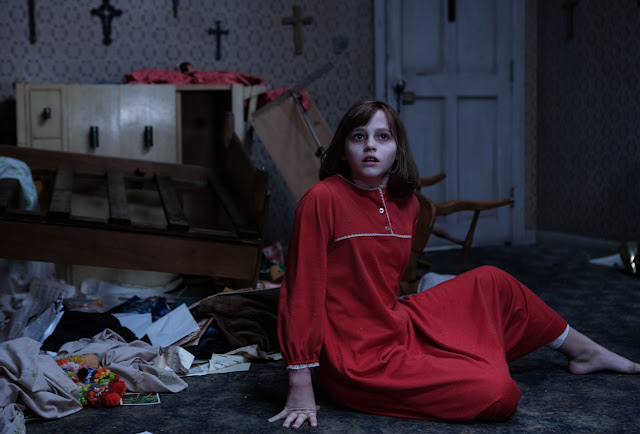Based on Anthony Burgess’s 1962 novella of the same name, A Clockwork Orange is a haunting story
of sadistic Alex DeLarge, his violent exploits, his consequent capture and
attempted rehabilitation. Sadistic is a modest word to describe Alex. He is not
a bully; he simply has tantrums of being savage and wanting sex. He is the type
we must avoid on the street. We must not touch him, not even stare, because he
might suddenly spring and detach our head from our neck while singing “Singin’
in the Rain” or humming Beethoven.
Alex is dangerous and he and his “droogs” George, Dim and
Pete spend their evenings getting high with “milk plus” (drugged milk) and
engaging in “ultra-violence.” They fight with rival gang, beat the homeless,
steal car and fucks randomly. Alex is the epitome of something more evil than
evil. Where this is coming from is not clearly explained in the movie. It could
have been the negligence of his parents who ironically spoil him. It could have
been his equally brutal friends. Or it could have been the society with its
failure to establish law and order.
But everything changes when Alex and his droogs has a sudden
disagreement. In the process, he kills a woman and after being charged with
murder, Alex is sentenced to 14 years in prison. Two years past and the
Minister of the Interior subjects Alex to Ludovico technique. The procedure
involves forcing him to watch violent clips until he becomes sick. Consequently, he seems to
develop aversion to violence and sex. But will Alex be really cured? Is human
nature stronger than external influences?
But more importantly, can we justify violent treatment on someone
violent? And when he is released into the society, can he make moral decisions
on his own?
A Clockwork Orange
can be divided into two parts. The first phase shows Alex as someone a perfect
society will not want. His sadistic sprees are something despicable and
unthinkable, and anyone watching the film will feel disgust and anger. After an
hour or so, Alex begins his transformation. But this is even more despicable
and unthinkable as he becomes human subject to a horrible experiment. The
treatment implants fear in him and takes away his freewill. As quoted from the
film, “He ceases to be a wrongdoer. He ceases also to be a creature capable of
moral choice.”
When he faces society again, he becomes a helpless prey to
his previous violence. And once again he becomes a subject, not to another experiment,
but to something more greedy and corrupted – politics. In the end scene, the
press celebrates the Minister’s visit to Alex in his hospital bed while in his mind, Alex is having sex in the snow amidst an approving crowd with a voiceover
saying: “I was cured, all right!” It makes us wonder whether society has indeed
altered Alex. Or it is Alex who played with society really well?
Other than its disturbing material, the success of A Clockwork Orange as a cinematic
masterpiece lies in the superb performance of the actors and director Stanley
Kubrick’s ingenuity in taking the right shots, setting the right mood, and blending the right music. Malcolm McDowell as Alex is very
convincing, with his over-the-top lunacy and seemingly natural immorality. His
stares can creep out anyone while his laughs sound pure evil. Coupled with his
boyish looks, he does a perfect portrayal of Alex. As with Kubrick’s creative
direction, he used long shots countless times to add extra dimension of
eeriness to the scene. He also employed various vibrant colors, complementary
to its otherwise dark theme.
A Clockwork Orange is a classic tour de force with powerful imagery
that will haunt you for a long time. It explicitly but elegantly uses violence
to mock society, a political satire to corruption and hypocrisy. Lesson taught
is that no human, no matter how evil, should be an inhuman subject in
establishing law and order. Violence does not grant any state to divest anyone
of his moral rights and freewill. On the other hand, though the character has
been shamelessly used by society through half of the film, Alex did not rise to
be a hero. We can only pity him but not look up to him. He remains a social
liability, and yet, he is still human. For these, five out of five stars for
the film.


























I found this exploration into morality and free will to be very thought-provoking.
ReplyDelete